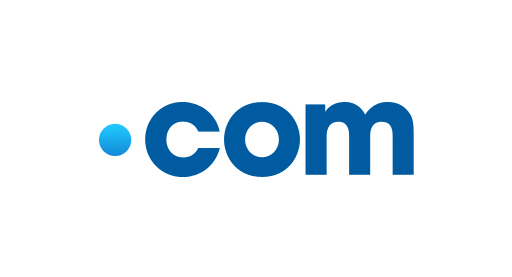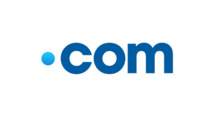SEC head Mary Jo White said that most of them do not place their shares on the stock exchanges. On the whole, this situation threatens both investors and employees of these companies.
"Companies, which shares are not traded on an exchange, cannot ignore the interests of investors. In fact, these companies have a serious responsibility to investors and markets." – Ms. White noted.
Funds of investors allow startups not to seek financing in the stock market. Investment in high-tech companies have already risen on a level, almost comparable to the "dotcom bubble" in the late 1990s.
Taxi service Uber, one of the most expensive of these companies, is estimated at $ 62.5 billion. Housing booking service Airbnb, Palantir engaged in data processing and Snapchat messenger broke the mark of $ 10 billion.
Many of the newly established companies, the so-called "unicorns", are striving to achieve the valuation of $ 1 billion. As noted by MJ. White such companies may overstate their real value in an attempt to get such a prestigious status.
March 10, 2000, was marked by the collapse of the IT-sector, which went down in history under the name of "dotcom crisis." On this day, NASDAQ (the index of the US market, specializing in shares of high-tech companies) reached its historic high - level of 5132.52 points, doubling the figures a year ago, and in just two months, the rise amounted to 1000 points. After that, a sharp decline had begun. In just five days, the index returned to a value of 4580 points, and the decline proceeded. One year later, the value of this index fluctuated around the level of 1500, and by the end of 2002, it was even closer to the bottom - 1100.
It is difficult to suggest where the next bubble may burst. Perhaps, it will be dotcoms once again. Risk analysts are looking at social networks such as Facebook, MySpace, Twitter. Due to a huge audience, they are very attractive for investors. For example, according to the analytical site comScore, the Facebook audience exceeded 430 million users worldwide in October 2009;, MySpace by that time had 120 million of them, and Twitter - more than 50 million.
Of these, the largest social network remains the most profitable, despite its large-scale non-profit projects, such as developments in the field of virtual reality, internet access in developing countries, and launch of the satellites in space to provide access to the global network in remote areas of the planet.
In its report to investors, the social network reported revenue for the third quarter 2015 of $ 4.5 billion compared with $ 3.2 billion for the same period a year earlier. This is higher than analysts' predictions that evaluated the rate of $ 4.37 billion.
Most of Facebook's revenue came from advertising revenues, which increased by 45.4% and amounted to $ 4.3 billion, with 78% of those obtained with the mobile segment (the figure was 66% in the same quarter of last year). This encouraged investors and the company's shares rose just 5% and reached a historic high. The company's capitalization exceeded $ 300 billion.
However, Facebook costs increased by 68% compared to last year and amounted to $ 3 billion. Stil, this does not look bothering to investors and analysts.
source: reuters.com
"Companies, which shares are not traded on an exchange, cannot ignore the interests of investors. In fact, these companies have a serious responsibility to investors and markets." – Ms. White noted.
Funds of investors allow startups not to seek financing in the stock market. Investment in high-tech companies have already risen on a level, almost comparable to the "dotcom bubble" in the late 1990s.
Taxi service Uber, one of the most expensive of these companies, is estimated at $ 62.5 billion. Housing booking service Airbnb, Palantir engaged in data processing and Snapchat messenger broke the mark of $ 10 billion.
Many of the newly established companies, the so-called "unicorns", are striving to achieve the valuation of $ 1 billion. As noted by MJ. White such companies may overstate their real value in an attempt to get such a prestigious status.
March 10, 2000, was marked by the collapse of the IT-sector, which went down in history under the name of "dotcom crisis." On this day, NASDAQ (the index of the US market, specializing in shares of high-tech companies) reached its historic high - level of 5132.52 points, doubling the figures a year ago, and in just two months, the rise amounted to 1000 points. After that, a sharp decline had begun. In just five days, the index returned to a value of 4580 points, and the decline proceeded. One year later, the value of this index fluctuated around the level of 1500, and by the end of 2002, it was even closer to the bottom - 1100.
It is difficult to suggest where the next bubble may burst. Perhaps, it will be dotcoms once again. Risk analysts are looking at social networks such as Facebook, MySpace, Twitter. Due to a huge audience, they are very attractive for investors. For example, according to the analytical site comScore, the Facebook audience exceeded 430 million users worldwide in October 2009;, MySpace by that time had 120 million of them, and Twitter - more than 50 million.
Of these, the largest social network remains the most profitable, despite its large-scale non-profit projects, such as developments in the field of virtual reality, internet access in developing countries, and launch of the satellites in space to provide access to the global network in remote areas of the planet.
In its report to investors, the social network reported revenue for the third quarter 2015 of $ 4.5 billion compared with $ 3.2 billion for the same period a year earlier. This is higher than analysts' predictions that evaluated the rate of $ 4.37 billion.
Most of Facebook's revenue came from advertising revenues, which increased by 45.4% and amounted to $ 4.3 billion, with 78% of those obtained with the mobile segment (the figure was 66% in the same quarter of last year). This encouraged investors and the company's shares rose just 5% and reached a historic high. The company's capitalization exceeded $ 300 billion.
However, Facebook costs increased by 68% compared to last year and amounted to $ 3 billion. Stil, this does not look bothering to investors and analysts.
source: reuters.com



















